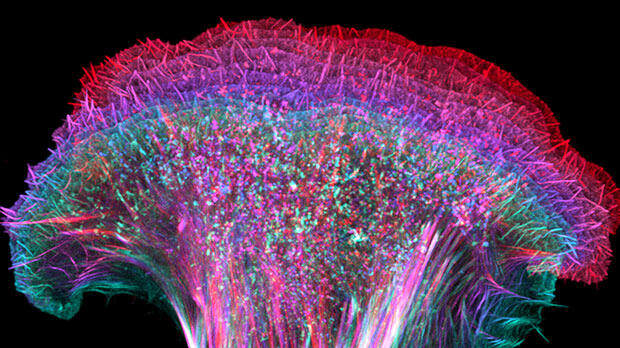Professor Steve Clifford’s team is looking at whether biomarkers – or ‘molecular fingerprints’ - in tumour samples could help determine what kind of treatment a patient should have.
Our research in Newcastle
In Newcastle
- Around 1,600 people are diagnosed with cancer each year.
- 54% of cancers are diagnosed early.
- We spent over £4m on life-saving research in 2022/23.
We receive no government funding for our research. Our life-saving work relies on the money you give us.
Newcastle is home to the Cancer Research UK Newcastle Centre, delivering world-leading research that accelerates the transition of lab-based discovery to the clinic for the benefit of people affected by cancer.
Last year, we spent over £4m on research in Newcastle. Collaboration is key to the centre’s work. By sharing their expertise, scientists, doctors and nurses are improving the care of patients across Newcastle and beyond.
The dedicated team at our Cancer Research UK Newcastle Centre are experts in a wide range of disciplines including clinical trials, drug discovery and radiotherapy. Our researchers are focussing on brain, blood, liver, bowel, and children’s cancers.
We are working in partnership with the Newcastle University Centre for Cancer, Newcastle Hospitals NHS Foundation Trust, Children's Cancer North and The Sir Bobby Robson Foundation to help patients within the city, across the UK and around the world.
Newcastle University is also an academic partner of Cancer Research Horizons, working together to translate discoveries from basic and clinical research into new breakthrough drugs. And our Senior Research Nurse in Newcastle facilitates the delivery of high-quality clinical trials and studies, getting new treatments into the clinic sooner.
What we're doing now
How we’ve made a difference so far
Scientists in Newcastle helped make the pioneering discovery that aspirin could potentially help prevent bowel cancer in people with Lynch syndrome. People affected by this disease have inherited a faulty version of a gene, which increases their chances of developing certain cancers, particularly bowel cancer. Professor Sir John Burn is now leading a clinical trial to find out what is the best dose of aspirin to prevent as many cases of cancer as possible, while minimising side effects. This trial could change the way this disease is managed and help us understand more about the role of aspirin in preventing cancer.
Work in Newcastle led to the development of drugs called PARP inhibitors – drugs designed to target the genetic ‘Achilles’ heel’ in cancers caused by faults in the BRCA1 or BRCA2 genes. This research led to the development of the drug, rucaparib, which is now an approved standard treatment for some women with ovarian cancer caused by faulty BRCA1 or BRCA2 genes.






